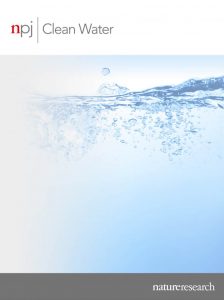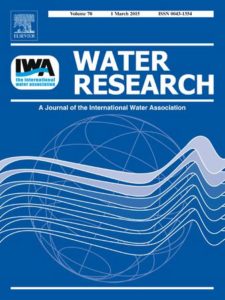Project
Last Updated on November 16, 2022
The Humanitarian Water Lab find ways to get safe, healthy water to vulnerable people in humanitarian crises and resource-constrained settings around the world. We work with people affected by crises and frontline responders to identify critical gaps in knowledge and practice wherever water intersects with human health. We bring together people with the right kinds of expertise and experience to catalyze transdisciplinary research; design, test, and refine solutions, and translate research to change real-world practice, all with the aim of helping to improve health, well-being, and dignity of vulnerable people. The Lab has three core areas of activity:
- Critical problem-solving research on pressing water and health challenges;
- Training and professional development on water, sanitation, and hygiene (WASH) in emergencies; and
- Convening international events to advance the humanitarian water engineering research agenda.
Selected Research Initiatives
- Safe Water Optimization Tool: Advanced water quality data analytics for ensuring water safety and protecting public health in humanitarian emergencies: https://www.safeh2o.app/
- Chemical water quality and potential health effects for children with severe acute malnutrition: e.g., https://f1000research.com/posters/8-603
- Sub-chronic health risks for vulnerable populations due to disinfection by-products in water systems in Canada and humanitarian and LMIC settings (new)
- Linking water quality, microbiological indicators, and epidemiological data using machine learning to create predictive waterborne disease risk management tools (new)
Selected Training & Professional Development Initiatives
- Humanitarian Water Engineering Intensive Course: https://www.yorku.ca/dighr/project/hwe/
Selected Events Initiatives:
- Emergency Data Science—Taking Advantage of the Data Flood 2018: An international workshop on building humanitarian decision-making tools in the age of big data: https://emergencydatascience.org/
- Is Humanitarian Water Safe? Pt. II (new): A ten-year follow-up to the 2011 Is Humanitarian Water Safe to Drink? Event convened by Médecins Sans Frontières: https://www.msf-crash.org/en/publications/medicine-and-public-health/humanitarian-water-safe-drink
Selected Research Outputs

De Santi, M., U. T. Khan, M. Arnold, J. Fesselet, and S. I. Ali (2021). ‘Forecasting point-of-consumption chlorine residual in refugee settlements using ensembles of artificial neural networks,’ npj Clean Water, 4 (35). doi: https://doi.org/10.1038/s41545-021-00125-2

Ali, S. I., S. S. Ali, and J. Fesselet (2021). ‘Modelling post-distribution chlorine decay in refugee camps: Evidence-based guidance for water chlorination in humanitarian emergencies,’ Water Research, 189(116642). doi: https://doi.org/10.1016/j.watres.2020.116642.

“Development of a machine-learning enabled Safe Water Optimization Tool for humanitarian response” Presentation at the 2020 Médecins Sans Frontières Scientific Days Conference, May 13-14, 2020: https://www.youtube.com/watch?v=n0jl8-JP0pk
Lab Leadership
Primary Investigator: Syed Imran Ali, Ph.D., Research Fellow, Dahdaleh Institute for Global Health Research
Faculty Advisor: Prof. James Orbinski, O.C., M.A., M.Sc., M.D., Director, Dahdaleh Institute for Global Health Research
Themes | Global Health & Humanitarianism |
Status | |
Related Work |
N/A
|
Updates |
Hot off the Press – New Opinion Article Publication: DATA: A Key for Unlocking Quality in WASH Programming | November 21, 2024
Recap — Humanitarian Water Engineering: Priorities for Health in Humanitarian Emergencies, with Syed Imran Ali | October 17, 2024 Researchers Publish First-Of-Its-Kind Study in "Water" | April 1, 2019 |
People |
Syed Imran Ali, Research Fellow, Global Health and Humanitarianism - Active
James Brown, Associate Course Director, Humanitarian Water Engineering; Technical Advisor, Safe Water Optimization Tool - Active |
You may also be interested in...
Don't Miss Our Winter 2023 Lineup of Events
Join us for a winter semester packed with insightful seminars from inspiring global health researchers at the Dahdaleh Institute: How to Influence Public Policy...What Happens When You Leave the Room? with Jean-Jacques RousseauGlobal Environmental Changes, ...Read more about this Post
Recap — Leveraging Systems Thinking for Effective Global Health Policies, with Tarra Penney
On October 30, Dahdaleh faculty fellow Dr. Tarra Penney presented on systems-based approach and how it can transform traditional methods of public health intervention. Her work seeks to address complex global health challenges by understanding ...Read more about this Post
2024 Year in Review
Thank you for your continued support, engagement, and invaluable contributions to our global health research community here at the Dahdaleh Institute. Happy holidays and cheers to a new year! 1. Nineteen Exceptional Scholars Awarded 2024-2025 Dahdaleh ...Read more about this Post
